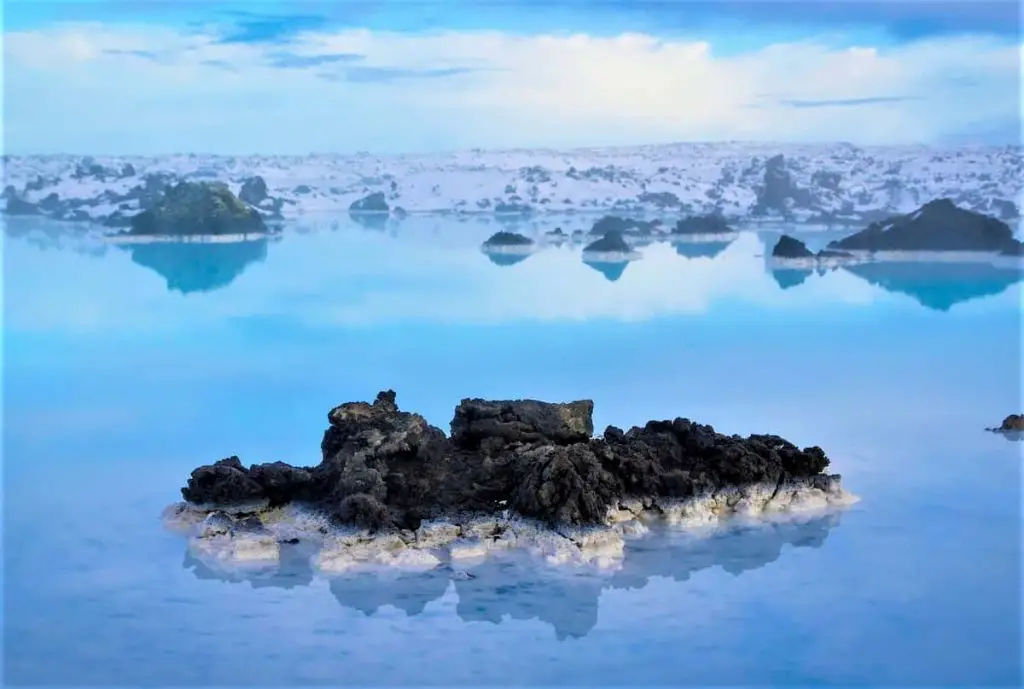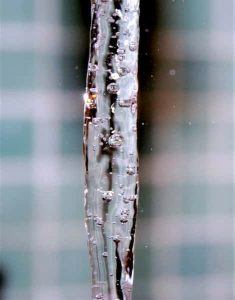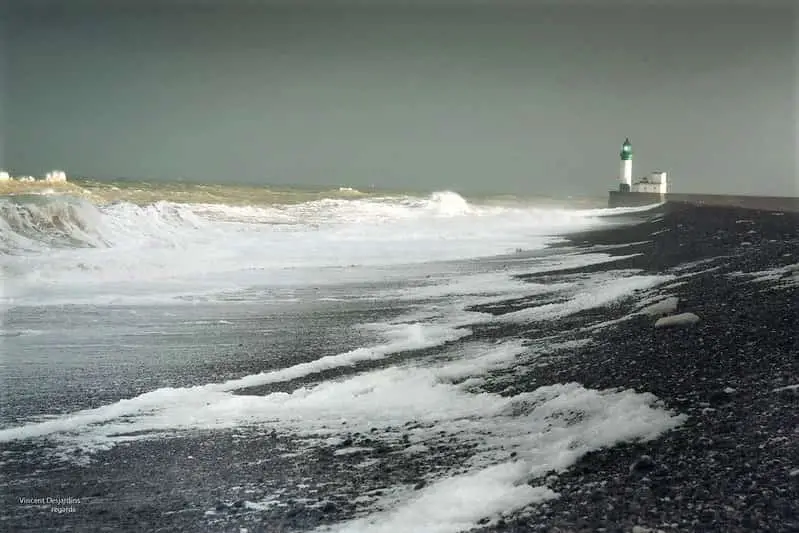Is water a good electricity conductor?

It’s dangerous to use power equipment in wet environments.
Does water conduct electricity? We’ve seen it on films, we’ve read it in books, we’ve even read the hazard-risk alert in the instructions of our radio, or our hairdryer… Do not use it close to water. And the reason is that water is an excellent electricity conductor. You could get an electric shock.
But honestly, does water conduct electricity?
No, it doesn’t. Not the water by itself. At least not very much. To be a good conductor we need something with low electrical resistance. Resistance is exactly what it says, resistance to conduct electric current. The opposite is electrical conductance, the ease with which an electric current travels through a body.
Pure water or water that consists of nothing else than water H2O, no impurity, no salts or minerals, has a maximum electrical resistance of 182.000 Ω m²/m (Ohms per square meter/meter). The conductivity, which measures the ease with which electricity can run through the material, the opposite of resistance, is 0,0000055 S/m (Siemens/meter).
For seawater, those figures are 0,2 Ω m²/m and 5 S/m
For tap water, it’s 2-200 Ω m²/m and 0,005-0,05 S/m
The theory

As you can see, there’s a huge difference in conductivity between the various types of water, And it all depends on what is solved within the liquid apart from the pure water. The water doesn’t conduct, but the minerals solved in it do.
For a material to have high conductance we need two things.
- There must be charged particles within the substance (either ions or electrons).
- These particles must be free to move. It is true that in water (H2O) the discrete molecules are free to move, however, they carry no charge.
Minerals and other impurities, all have these characteristics, so if these are present in the water, it conducts electricity. Actually, more or less anything that is solved in the water conducts electricity. Salt is an excellent conductor, solved in water The salt molecules split into two pieces, a sodium ion, and a chlorine ion. The sodium ion is missing an electron, and the chlorine ion has an extra electron. That way, the salt has both a positive and a negative charge.
The current through the water will have two terminals: a negative, and a positive. Opposite charges attract, so the sodium ions are attracted to the negative terminal and the chlorine to the positive. A bridge is formed. The sodium ions absorb electrons from the negative terminal, pass them to the chlorine ions, and then to the positive terminal.
It takes very little impurities in the water to completely change its qualities for it to become conductive.
Let’s check Water Electricity Conductivity
This is resistance in demineralized water, tap water, and, saltwater. It’s not very scientifically correct. The multimeter cost 50 bucks and the demineralized water is not pure water. It was bought in a plastic bottle at the nearest supermarket.
This is the resistance in demineralized water. Around 900 Ω.
This is tap water. No more than 90 Ω.
This is saltwater. Not seawater, but tap water with salt in it. The resistance is 40 Ω.
Here we start with demineralized water and pour salt into it. Interestingly, at the start, it is now less than 700 Ω. The short time and very little handling, the particles losing from the electrodes, have made the water more conductive.
As stated above, I don’t get the values I should, cause I’m not using laboratory equipment. Sorry about that, But you get a general idea of what’s happening.
Then how come it’s so dangerous when close to electric things?
Now that we understand that even if pure water isn’t a good conductor, normal water does conduct electricity. The water we have around us is all contaminated, and it’s dangerous, close to electricity.
If you are wet, you act as a connector to everything around you. You are electrically connected to everything. And if you touch an electrically charged object or the plug, you could transmit that energy through your body to the ground. Like a lightning rod. 110-220 volts is bad enough if you just touch the cables. But if you have become the bridge yourself because you’re wet, it could be very hard to break the circuit. You can’t just drop the cords, you’re standing on the terminal and your whole body is a wet part of the shortcut. The damage would be lethal.
The hazard risk
This is what you should keep in mind:
- Keep hands dry when handling electrical wires and plugs.
- Unplug electrical appliances when not in use in wet areas. Unplug the hairdryer inside your bathroom or an induction cooker beside the kitchen sink.
- Keep electrical devices and extension cords away from water sources or running water.
- Hire a professional electrical contractor to install electrical connections in swimming pools or bathrooms.
- Prefer battery-operated devices instead of electricity-driven appliances in bathrooms and pool areas.

Conclusion
No, actually pure water is a very poor electricity conductor. But pure, distilled water is rare. All other water, tap water, rainwater, seawater, is full of minerals and other impurities, and they make good conductivity. So, take great care when combining water and electricity.
sources